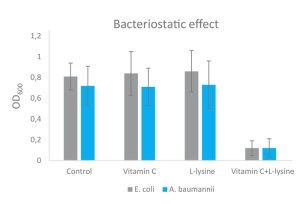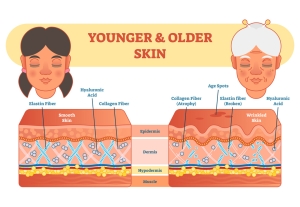In our previous Health Science News Page, we discussed some of the physiological changes that women face throughout their lifetimes such as puberty, menstruation, pregnancy, lactation, and menopause. A woman’s body needs extra nutritional support during these physiological transitions because her cardiovascular, endocrine, nervous and immune systems face different challenges than men due to the fluctuating hormones at different stages of life. In addition to heart disease and cancers, women are more often diagnosed with autoimmune diseases, arthritis, osteoporosis, and depression. Therefore, it is crucial to provide appropriate nutritional support to ensure the optimum function of the cells building these systems in a woman’s body.
In addition to several aspects of the empowerment of women on International Women’s Day on March 8th, we would like to bring up a largely unrecognized issue of the rising rates of chronic health conditions in women. Did you know that many health issues affect more women than men?
February is national cancer prevention month. The “War on Cancer” declared by U.S. President Nixon more than 5 decades ago is still going on and cancer remains the second leading cause of death worldwide. The World Health Organization’s International Agency for Cancer Research has projected that cancer diagnosis will increase by 75%-90% by the year 2030. While we understand more about cancer development and progression, the treatment has not changed much from the standard trio-surgery, chemotherapy, and radiation. Many of the chemotherapy drugs are labeled as carcinogens, yet they are still the mainstay of the treatment. Each of the current treatments is associated with inherent health risks and side effects, however, all remain a part of standard cancer therapy. Chemotherapy drugs kill the rapidly growing cells, and therefore they attack not only cancer cells but also healthy cells in the body (i.e., hair follicles, blood cells, intestinal lining cells). Due to such indiscriminate killing of all cells, the chemotherapy drugs cause widespread damage to the body. When a cell dies as a result of chemotherapy, its remains, called the cell debris, can be dangerous too. They can induce inflammation, which in turn can trigger other cancers and health problems. In one of the studies conducted at the Dr. Rath Research Institute, one group of mice was exposed to the breast cancer cells together with debris generated by the chemotherapy drug, docetaxel, and another group of mice was exposed only to breast cancer cells. The results indicated that the group of mice that was given the cancer cell debris after docetaxel showed significantly more pronounced tumor growth and aggravated inflammatory markers (TNF-alpha, IL-1) than the mice that were exposed only to breast cancer cells.
Although COVID-19 has now become an endemic and is less severe, flu and COVID-19 remain a concern due to the continuous mutations of these viruses. Vaccinations have only limited efficacy against the most recent variants. Hospitals have brought back the mask requirements due to an increase in the infection rates and the health officials expect a significant rise in respiratory illnesses and admissions during the winter months. The latest variants of SARS-CoV-2 (JN.1) caused almost half of the COVID-19 cases around the holidays. In the past couple of years, it has also been observed that COVID-19 is not only a cause of temporary respiratory illness, but it triggers a new and chronic illness. The so called “long Covid” could be more debilitating for previously healthy people. It can last for weeks even years after the infection and it can be manifested as cardiovascular problems, cognitive impairment, brain fog, concentration and memory issues, nerve pains, and others.
Healthy and well-balanced nutrition can unlock the full potential of your mind and safeguard your cognitive well-being.
The brain is a marvel of complexity and relies on nourishment to thrive, to produce energy, and synthesize neurotransmitters and maintain their balance in the body. It needs nutrients to synthesize and regulate various hormones, produce and repair nerve synapses (the connection between two neurons) and the myelin sheath (the protective covering around the neurons). The brain also requires a healthy blood-brain barrier which controls the passage of substances between the bloodstream and the brain.
In a world where bacterial infections are a constant threat, scientists at the Dr. Rath Research Institute uncovered a formidable team - lysine and vitamin C which when combined can become a powerful force against the bacteria responsible for urinary tract infection (UTI) and a range of other infections.
Bacterial infections, especially those causing UTI, are a widespread concern. These infections can disrupt your life, causing discomfort and even serious health complications, and the overuse of antibiotics has only fueled the rise of antibiotic-resistant strains, making effective treatment harder to achieve.
As the summer approaches, we become more concerned with sun exposure and skin cancers. Basal cell carcinoma, squamous cell carcinoma, and melanoma are the most common forms of skin cancers, and malignant melanoma is the most fatal of them all. Worldwide, one in three people are diagnosed with cancers that are classified under skin cancers.
Prostate cancer is one of the most common cancers affecting men worldwide and is the second most common cancer in men globally. It is a significant health concern, specifically in men 65 and older, as one in every eight men will be diagnosed with prostate cancer in their lifetime.
The prostate gland is a small walnut-shaped organ that produces seminal fluid, which in turn contains many enzymes including prostate-specific antigen (PSA) and contributes to the fluidity of semen. Increase in the PSA levels is one of the main indicators of either prostate cancer or benign prostatic hypertrophy. Although screening may help earlier diagnosis of prostate cancer, treatment options are still confined to surgery, hormone therapy, and radiation, with high cost, serious side effects, and limited efficacy.
Millions of people worldwide are affected by seasonal and food allergies. Allergies are hypersensitivity responses that occur when the immune system overreacts to substances that are normally harmless such as pollen, pet dander, or certain foods. Allergies are associated with a variety of symptoms such as sneezing, itching, nasal congestion, skin rashes and digestive symptoms. Some allergies need an immediate medical intervention as life threatening while most of the allergy management involves allergen avoidance and symptomatic treatment by medications. However, there is substantial research support on application of micronutrients in modulating the immune response and reducing allergy symptoms. Some of these include:
You may be surprised to know that our skin is the largest organ in the body comprising 15% of the body weight. In addition to providing protection, regulating body temperature, and excreting toxins, it also uses sunlight to produce the important nutrient – vitamin D. Healthy looking skin results from a good supply of oxygenated blood and optimum collagen content. Changes in its appearance tell a lot about our internal health as various nutritional deficiencies, an unhealthy lifestyle, digestive, liver, and kidney issues, hormonal imbalances, inflammatory diseases, allergies, and autoimmune disturbances are visible on the skin. Therefore, skin health is essential for our overall well-being.









